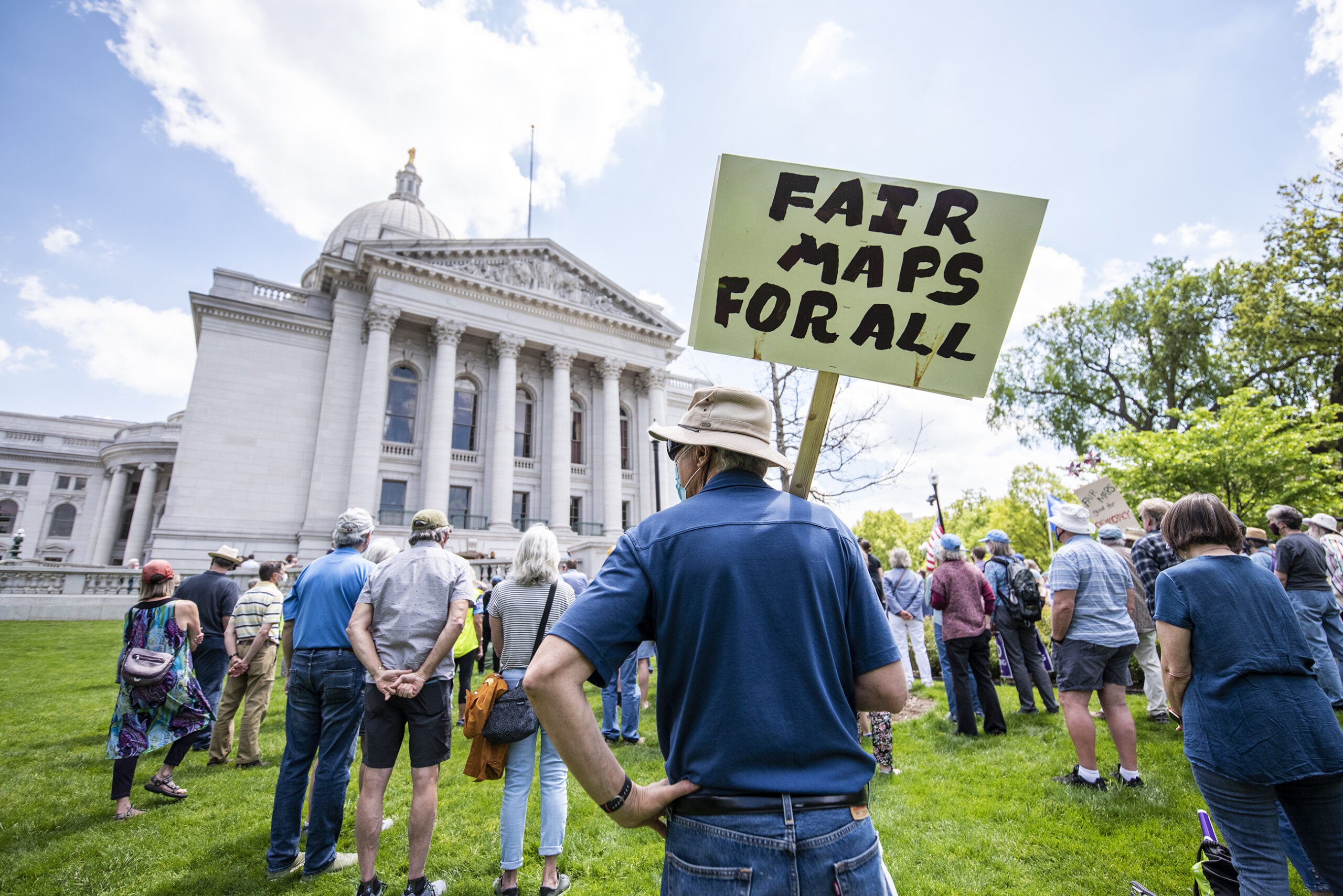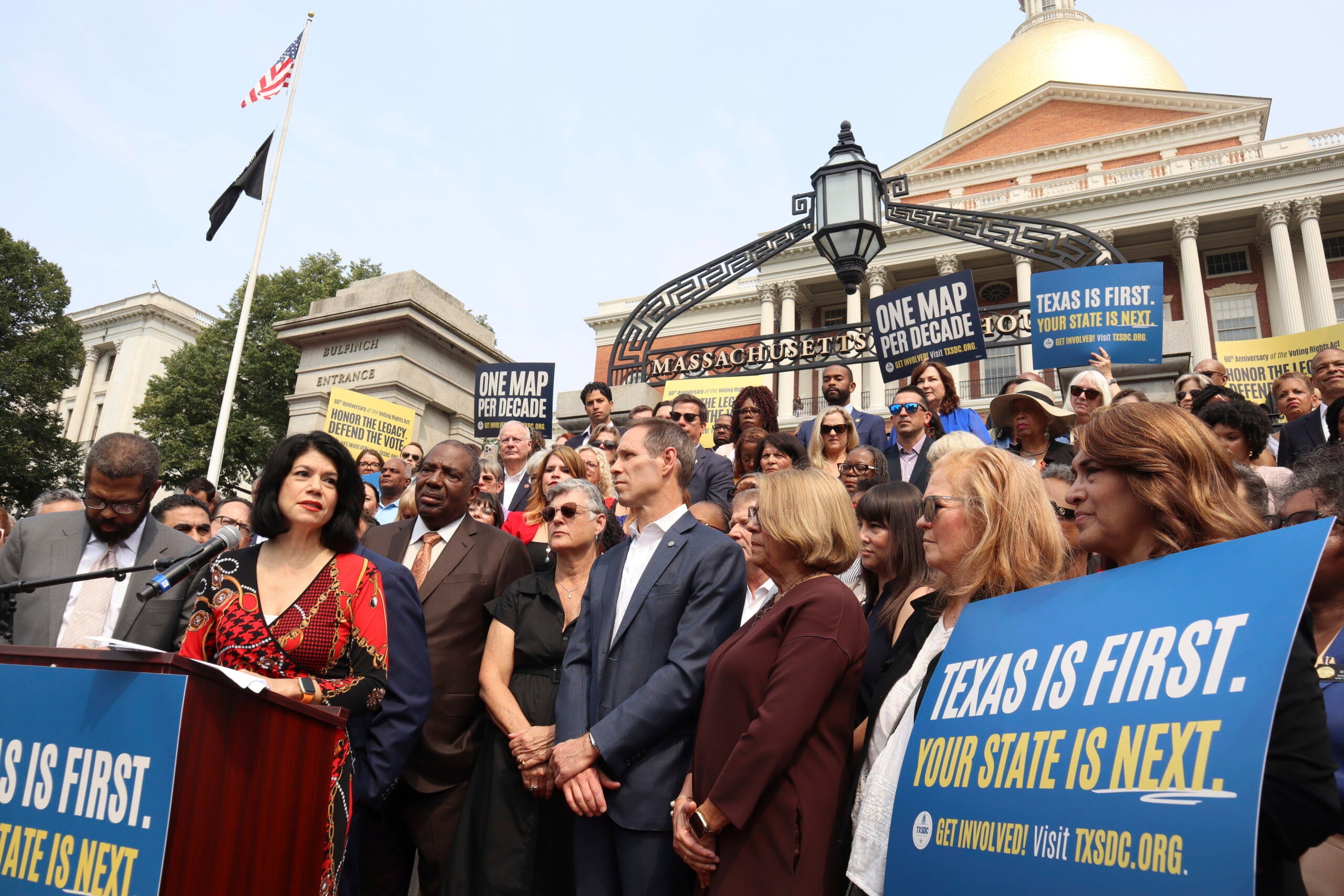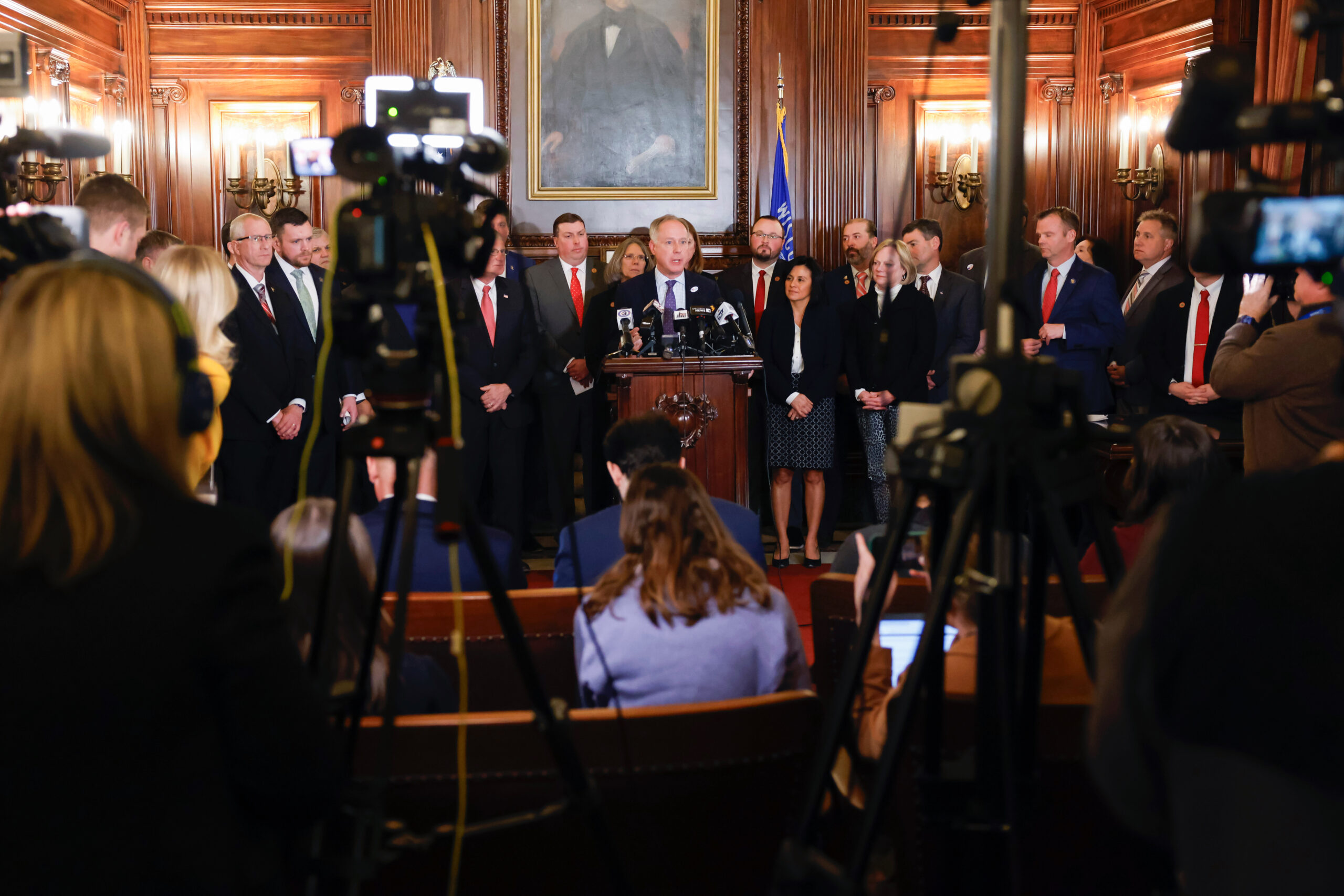Some redistricting experts believe amendments to a bill seeking to revamp Wisconsin’s process for drawing political district maps are an improvement from the original proposal, but they say more work needs to be done after the plan was fast-tracked this week.
Late Thursday, the Republican-controlled state Assembly passed the bill, which was announced in a surprise press conference Tuesday by Republican Assembly Speaker Robin Vos.
The bill comes amid two ongoing lawsuits over Wisconsin’s existing GOP-drawn legislative maps. Democrats say it’s a partisan attempt to deny the Wisconsin Supreme Court — and its new 4-3 liberal majority — a chance to decide on the maps.
News with a little more humanity
WPR’s “Wisconsin Today” newsletter keeps you connected to the state you love without feeling overwhelmed. No paywall. No agenda. No corporate filter.
Vos has previously opposed similar efforts to enact redistricting reform in the state. In a Tuesday statement, Democratic Gov. Tony Evers called the bill a “bogus” attempt to interfere in elections.
Under the proposal, which never received a public hearing, staff with Wisconsin’s nonpartisan Legislative Reference Bureau would be tasked with drawing proposed political district maps every 10 years, following the census. Those plans would then need to be approved by state lawmakers and signed by the governor.
An amendment added Thursday removes the ability for state lawmakers to amend the nonpartisan agency’s maps if they don’t pass a third round of voting. John Johnson, research fellow at the Marquette University Lubar Center for public policy research and civic education, called that move an “improvement.”
“Removing the ability of the legislature to simply amend the nonpartisan plan however they want and instead requiring them to just vote that up or down is definitely an improvement,” Johnson said.
Another amendment says the nonpartisan maps can only be approved by a “bipartisan vote” from state lawmakers.
“Those are definitely improvements, from a nonpartisan redistricting perspective,” Johnson said.
Wisconsin’s current maps are considered to be the most gerrymandered in the nation. The nonpartisan Gerrymandering Project at Princeton University gives Wisconsin’s current maps an “F” for political fairness.
READ MORE: WPR’s award-winning podcast on redistricting in Wisconsin, “WPR Reports: Mapped Out“
Anthony Chergosky, a political science professor at the University of Wisconsin-La Crosse, said the amendments addressed some “clear flaws” with the initial proposal. But he said more public debate and a thorough examination of the plan needs to occur.
“I don’t know that I can make a clear judgment on this legislation, just because the process has been so rushed,” Chergosky said. “It’s really hard to fully understand a bill that would make a sweeping change to such an important process, and they’re (lawmakers) seeking to pass it on such a condensed timeline.”
Still, Johnson said the bill as amended is a step forward.
“I think this bill demonstrates that there might be room for some kind of common ground,” he said. “But it just feels suspicious to a lot of people involved when it’s rushed through the legislative process in this way.”
When Vos announced the bill, he said the concept was modeled on a system that’s been in place in Iowa for decades. But Chergosky said the original proposal “deviated” from that model. If lawmakers miss a deadline in the Iowa system, the Iowa Supreme Court comes in to draw the maps, Chergosky said. But in the Wisconsin proposal, he said, the role of the courts isn’t entirely clear.
Thursday, Iowa State Auditor Rob Sand, a Democrat, and former Republican Party of Iowa Chairman Mike Mahaffy released a statement highlighting differences in the Iowa model and Wisconsin’s new plan.
“The proposal currently in front of the Wisconsin Legislature cannot be accurately called the Iowa model because it lacks the elements that have been the foundation for our system’s success,” the statement said.
“The clearest and most consequential difference is that Wisconsin’s proposal rejects our system of judicial review. In Iowa, the legislature has limited opportunities to accept or reject the maps drafted by legislative staff. If lawmakers fail to reach consensus, the maps are drawn by the Iowa Supreme Court and enacted,” the statement adds.
Johnson also said more analysis of the proposal is necessary, including for an amendment that reads “No plan may be considered and voted on after January 31 of the 2nd year following the federal decennial census.”
“One reading of the law would be that the legislature suddenly is allowed to do anything, at that point,” Johnson said about the January 31 date. “It’s unclear and that might just represent the kind of rushed way that the bill has been passed.”
The bill doesn’t address what happens if the legislature and governor are gridlocked, Johnson said, and are unable to approve any map offered to them by the Legislative Reference Bureau.
On the social media app formerly known as Twitter Friday, some Wisconsin Democrats and fair maps advocates said the amendments don’t go far enough to creating a truly fair redistricting system.
The proposal is now in the hands of Wisconsin’s Republican-controlled state Senate. If they pass it, it would go to Democratic Gov. Tony Evers, who could refuse to sign it.
Wisconsin Public Radio, © Copyright 2025, Board of Regents of the University of Wisconsin System and Wisconsin Educational Communications Board.






